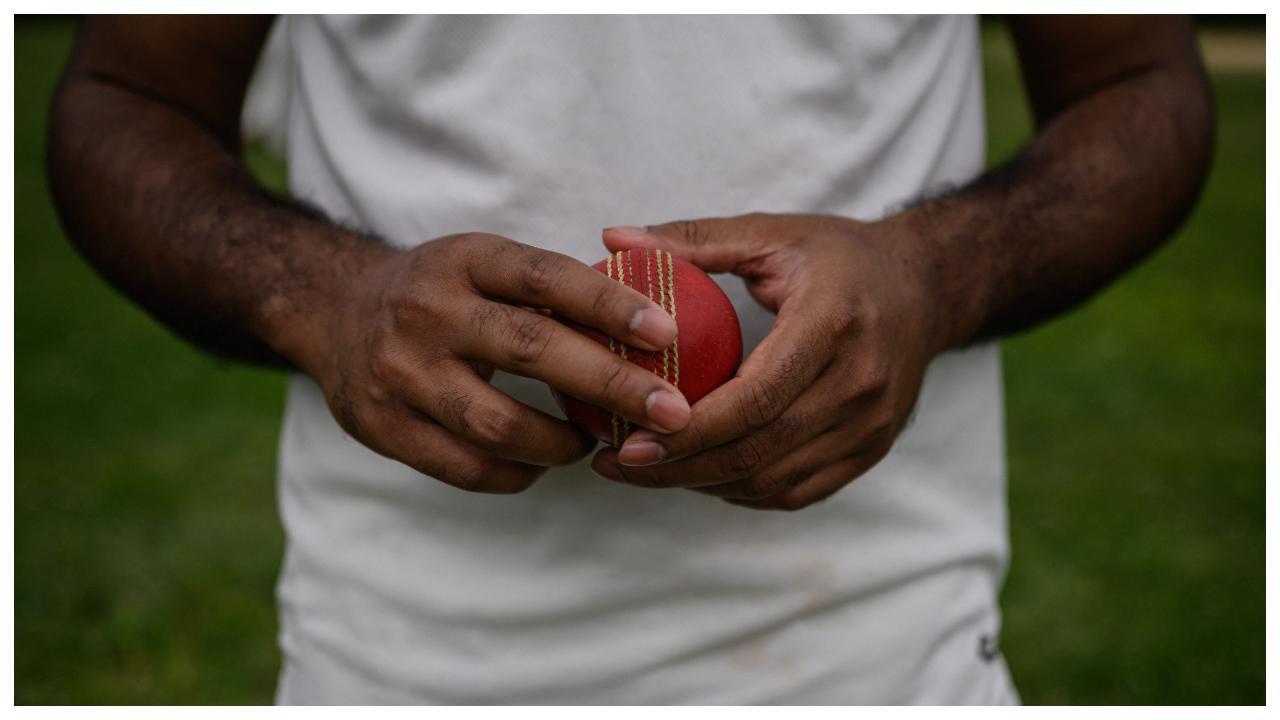The main changes to the playing conditions come into effect from October 1, 2022, which means they will be applicable in the ICC T20 World Cup in Australia from October 16.

Representational pic. Source/PTI
The International Cricket Council (ICC) on Tuesday made the ban on the use of saliva to polsih the ball a permanent affair, while also introducing a clause whereby any "unfair" and "deliberate movement" while the bowler is running in to bowl could now result in the umpire awarding five penalty runs to the batting side, in addition to a call of 'dead ball'. The ICC has announced several changes to its 'playing conditions' after the Chief Executives' Committee (CEC) ratified the recommendations from the Sourav Ganguly-led Men's Cricket Committee.
ADVERTISEMENT
The main changes to the playing conditions come into effect from October 1, 2022, which means they will be applicable in the ICC T20 World Cup 2022 in Australia from October 16. In a statement on the use of saliva to polish the ball, ICC said, "This prohibition has been in place for over two years in international cricket as a Covid-related temporary measure and it is considered appropriate for the ban to be made permanent." On the issue of unfair movement by the fielding side, the new ICC rule says, "Any unfair and deliberate movement while the bowler is running in to bowl could now result in the umpire awarding five penalty runs to the batting side, in addition to a call of 'dead ball'."
The other rule changes that will come into effect from October 1, 2022 are:
Batters returning when caught: When a batter is out caught, the new batter will come in at the end the striker was, regardless of whether the batters crossed prior to the catch being taken. Incoming batter ready to face the ball: An incoming batter will now be required to be ready to take strike within two minutes in Tests and ODIs, while the current threshold of ninety seconds in T20Is remains unchanged.
Striker's right to play the ball: This is restricted so as to require some part of their bat or person to remain within the pitch. Should they venture beyond that, the umpire will call and signal Dead ball. Any ball which would force the batter to leave the pitch will also be called No ball.
Running out of the non-striker: The playing conditions follow the Laws in moving this method of effecting a Run out from the 'Unfair Play' section to the 'Run out' section.
Also Read: Anushka Sharma misses hubby Virat Kohli
Bowler throwing towards striker's end before delivery: Previously, a bowler who saw the batter advancing down the wicket before entering their delivery stride, could throw the ball to attempt to Run out the striker. This practice will now be called a dead ball.
Other major decisions: The in-match penalty introduced in T20Is in January 2022, (whereby the failure of a fielding team to bowl their overs by the scheduled cessation time leads to an additional fielder having to be brought inside the fielding circle for the remaining overs of the innings), will now also be adopted in ODI matches after the completion of the ICC Men's Cricket World Cup Super League in 2023.
It was also decided that the playing conditions for all men's and women's ODI and T20I matches will be amended to allow hybrid pitches to be used, if agreed by both teams. Currently, hybrid pitches can only be used in women's T20I matches. "It was an honour chairing my first meeting of the ICC Cricket Committee. I was pleased with the productive contribution of the Committee members which resulted in key recommendations being made. I thank all members for their valuable input and suggestions," said Ganguly.
The ICC Cricket Committee included: Sourav Ganguly (chair); Ramiz Raja (observer); Mahela Jayawardena and Roger Harper (past players); Daniel Vettori and VVS Laxman (representatives of current players); Gary Stead (member team coach representative); Jay Shah (full members' representative); Joel Wilson (umpires' representative); Ranjan Madugalle (ICC Chief Referee); Jamie Cox (MCC representative); Kyle Coetzer (Associate representative); Shaun Pollock (media representative); Greg Barclay and Geoff Allardice (Ex Officio -- ICC Chair and Chief Executive); Clive Hitchcock (committee secretary); David Kendix (statistician).
This story has been sourced from a third party syndicated feed, agencies. Mid-day accepts no responsibility or liability for its dependability, trustworthiness, reliability and data of the text. Mid-day management/mid-day.com reserves the sole right to alter, delete or remove (without notice) the content in its absolute discretion for any reason whatsoever.
 Subscribe today by clicking the link and stay updated with the latest news!" Click here!
Subscribe today by clicking the link and stay updated with the latest news!" Click here!







